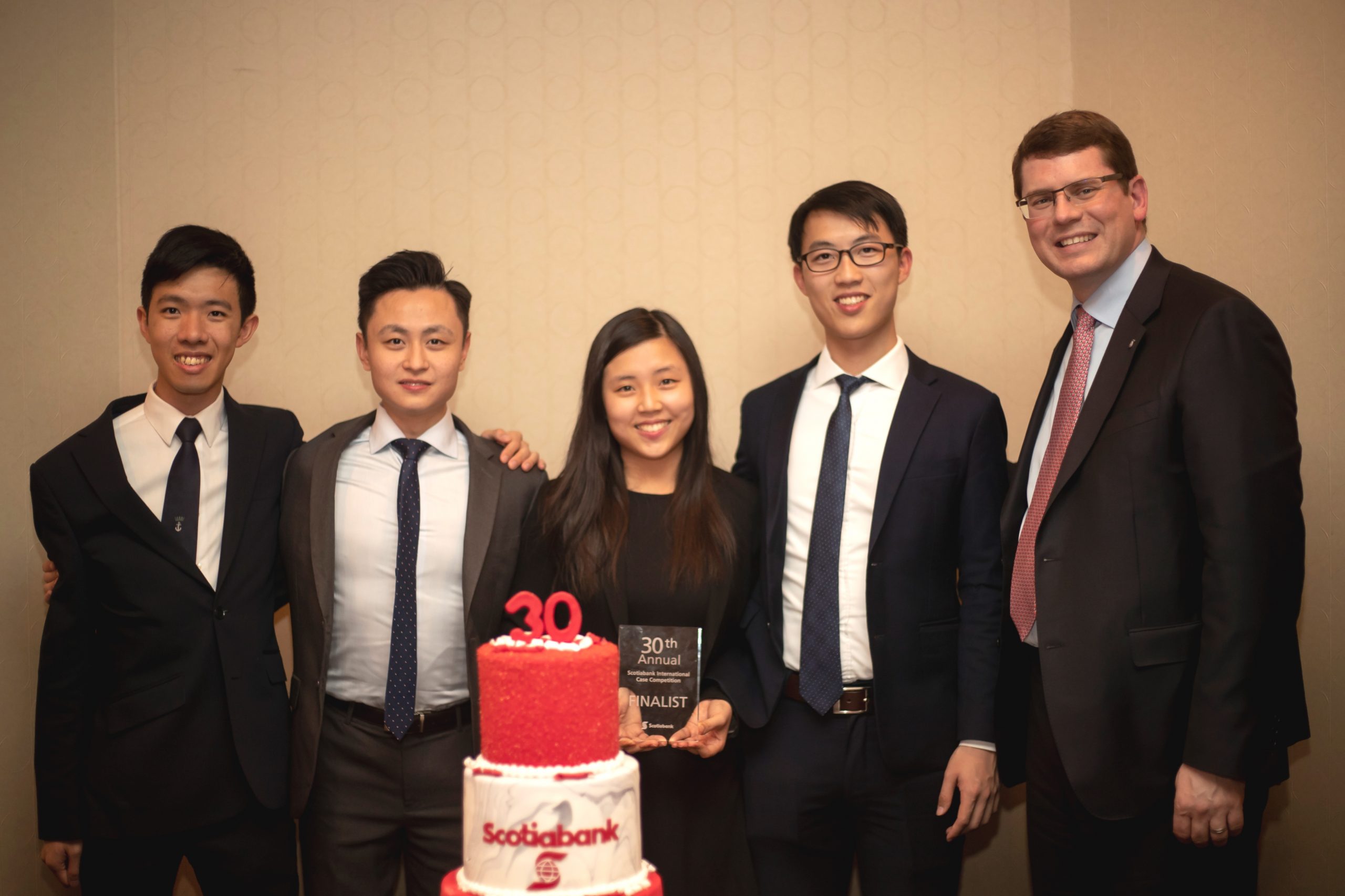“Control your greed,” counsels Xiaomi Co-founder and Senior Vice President at EMBA-Global Asia 2019 Recognition Ceremony
Mr. Feng HONG, Co-founder and Senior Vice President of Xiaomi, the world’s fourth-biggest smartphone company, addressed graduates from class of 2019 at the EMBA-Global Asia Recognition Ceremony held on 22 June.
After graduating from Shanghai Jiao Tong University with a degree in computer science and engineering, Mr. Hong received a Master’s Degree in computer science from Purdue University. After a career in Google, Mr. Hong initially spearheaded the development of Xiaomi’s MIUI platform, the smartphone’s operating system. He now oversees Xiaomi Finance, the firm’s financial services arms.
Mr. Hong congratulated the new graduates and noted that the EMBA-Global Asia is a very respected programme before sharing some lessons from his nine years at Xiaomi.
While the retail price of most products is usually six times the manufacturing cost, and 8 to 10 times for clothing, Xiaomi’s mark-up is typically just 10 percent. The company’s logic is to look to the bigger picture and the longer term, explained Mr. Hong. Selling at a lower price enables the company to sell more products, which further reduces material costs, creating a positive cycle.
“However, we do have a lot of arguments on the pricing part, especially when we enter some areas with traditionally very high margins,” he admitted.
Setting the price for the company’s air purifiers a few years ago was one such occasion. These products typically retail for about 3-4000 RMB and they cost about 900 RMB to produce. “So how to price them? We thought about half the price was already good enough, [but] our CEO decided to set the price at 899 RMB,” Mr. Hong recalls.
The production team was not happy, with one member complaining that the target price was an insult to his work. Mr. Hong tried to convince the CEO to increase the price at least to 999 RMB, but the CEO told him: “We need to be disciplined at making just a small, reasonable profit on everything we do, and we need to do it religiously. I want to build trust with our customers so one day when they go to our store, they don’t need to look at the price tags, they just know they’re getting a pure product at the best price in town. Control your greed.” The discussion was over.
Over time, as sales revenues have multiplied, Mr. Hong has come to understand and appreciate the CEO’s strategy.
Xiaomi has also pursued innovative product development strategies to produce its many smart devices. Most of these products are built by the firm’s eco-system companies, explains Mr. Hong.
In 2014, the firm saw a great opportunity with smart devices, “We believed all those devices would be upgraded with connecting capabilities and they would be connected all together in the years to come. The problem was how to capture this trend.”
The company eventually decided to invest in incubation.
“We identified teams with good product engineering skills and provided all the other support,” he says. That support included providing all the start-up funds, sharing sales and marketing support, and providing supply chain support connections to allow these companies to get volume discounts very quickly.
The model has been a great success and Xiaomi now counts more than 100 companies in its eco-system. Between them, the companies are now launching almost one product every four days.
“Sometimes, it may be the right decision to step back, to take less, and do so willingly,” Mr. Hong advised the graduates. “After all, good companies make profits, but great companies win the hearts and minds.”






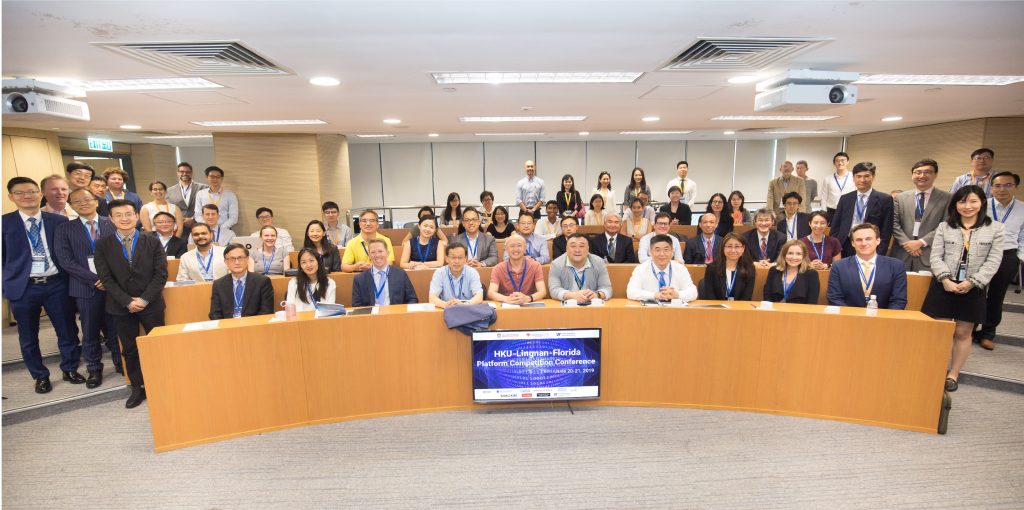
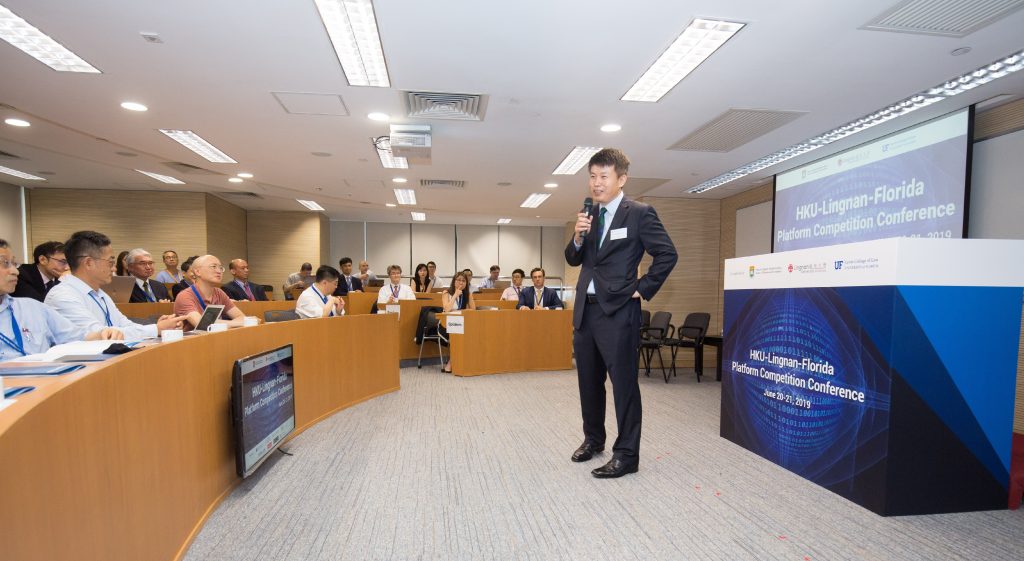
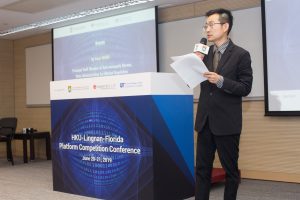
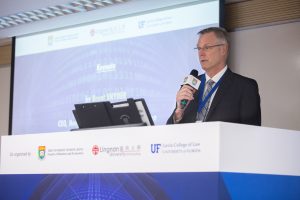
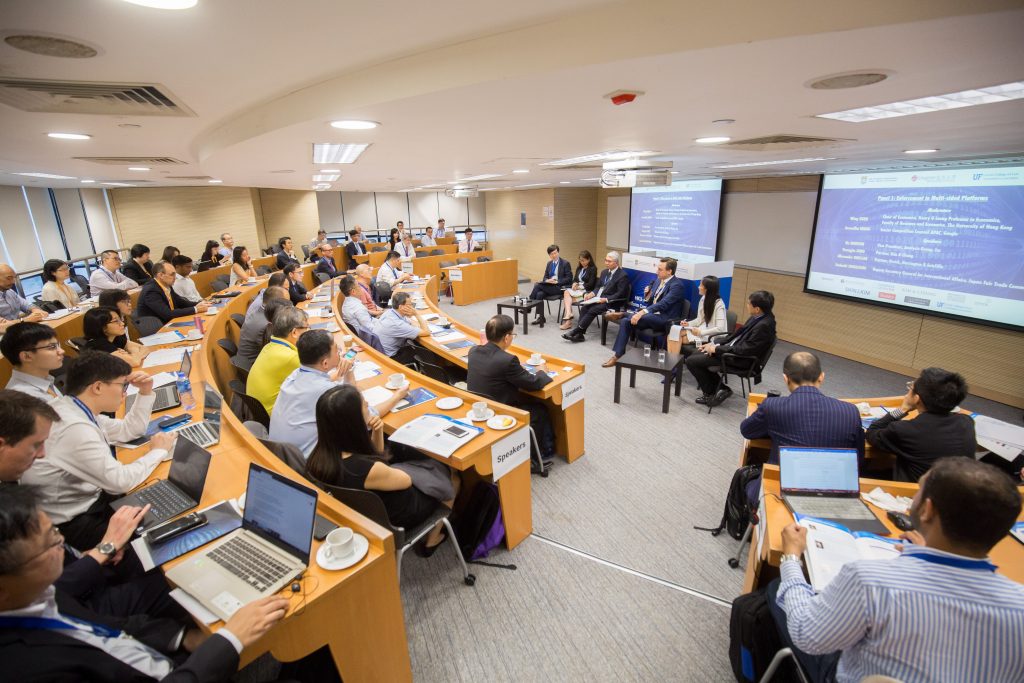
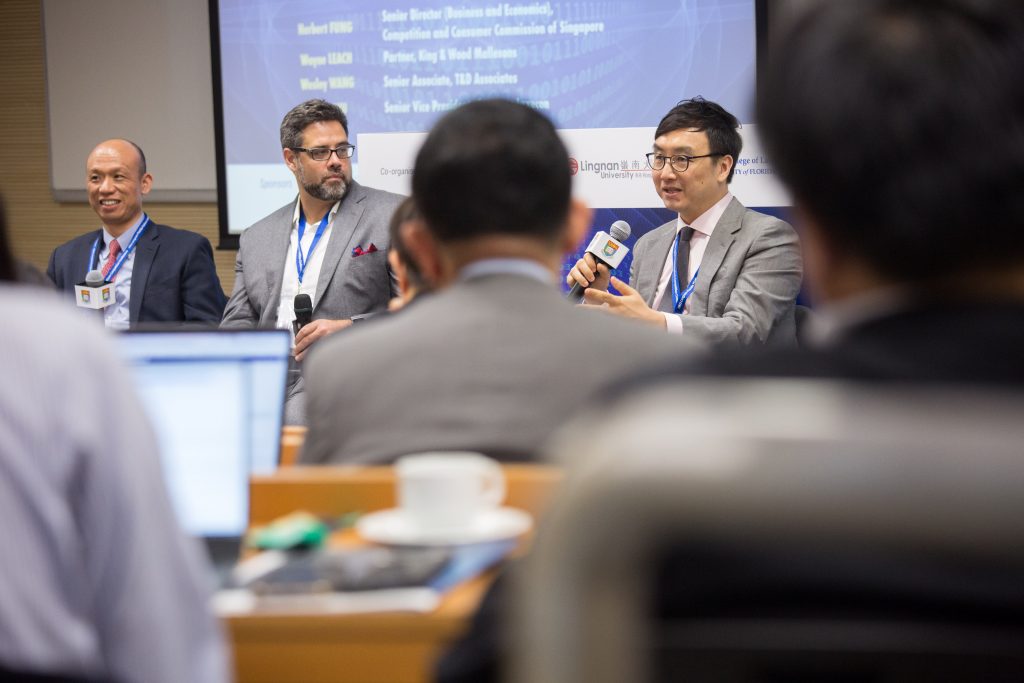
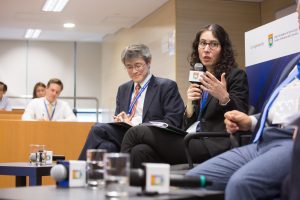
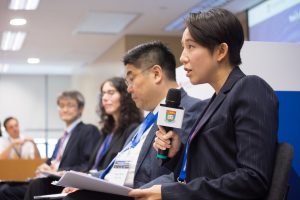
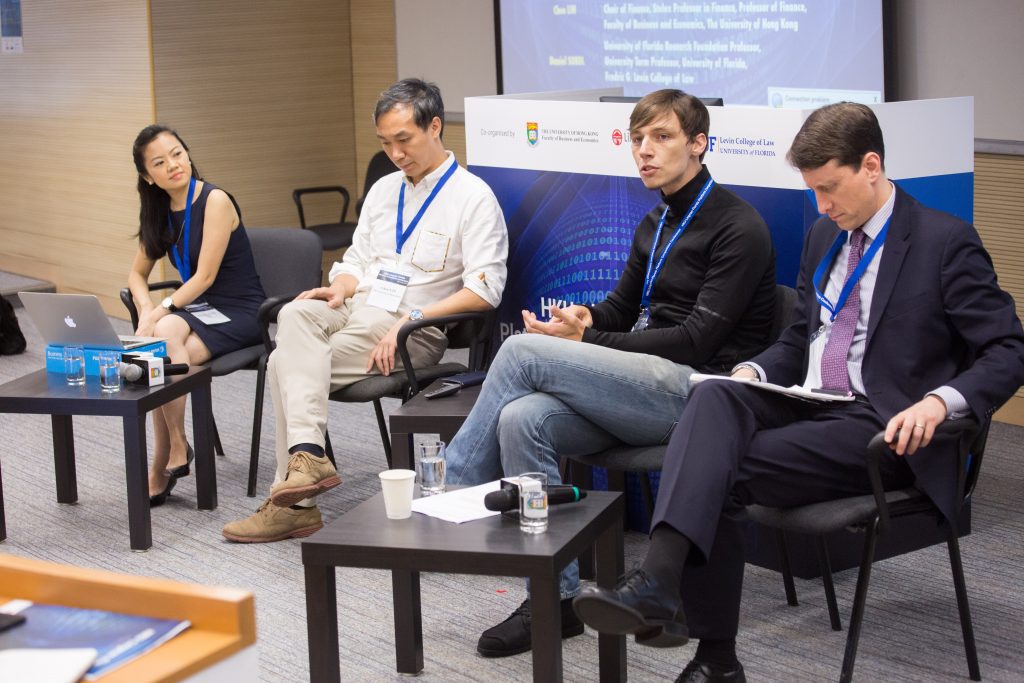
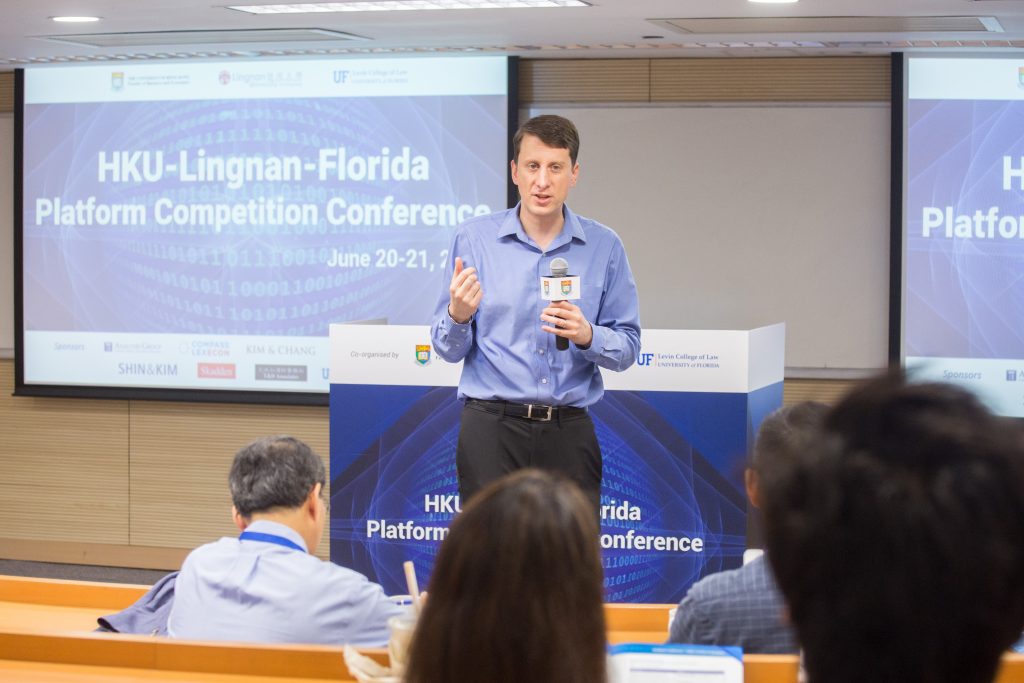
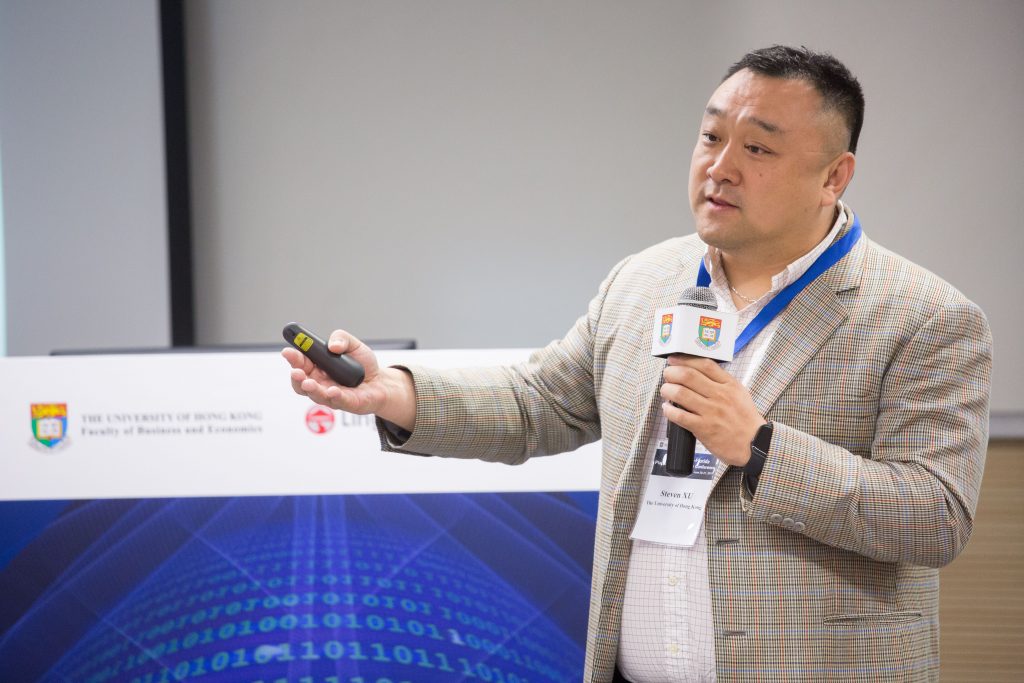
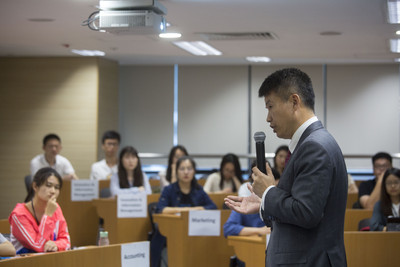
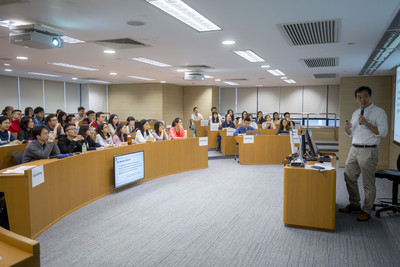
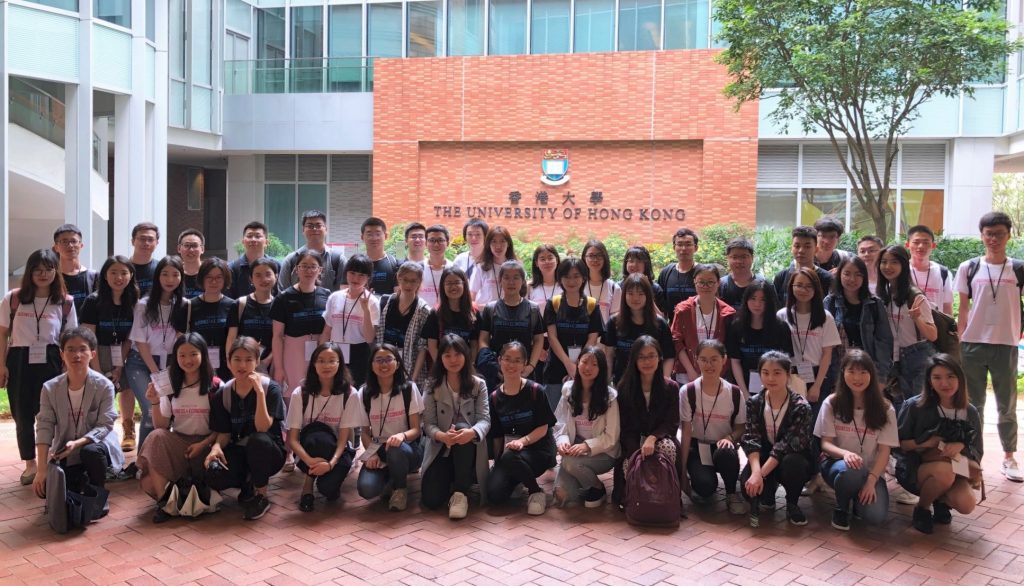






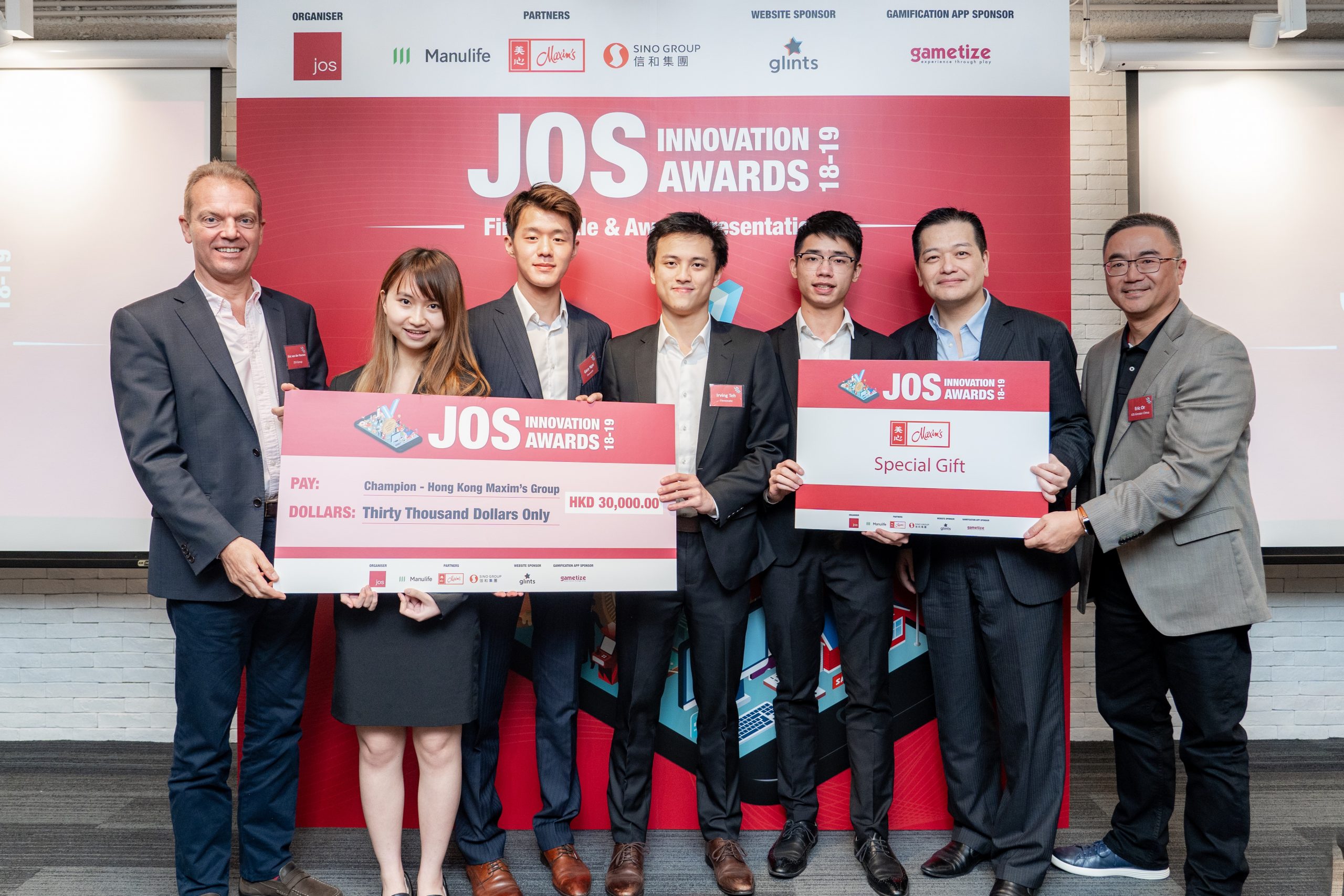 The winning team members (2nd from left) Rachel Cha, Gary Ngai, Irving Teh and Kony Kwong, with representatives from Hong Kong Maxim’s Group and JTH Group.
The winning team members (2nd from left) Rachel Cha, Gary Ngai, Irving Teh and Kony Kwong, with representatives from Hong Kong Maxim’s Group and JTH Group.